Uncategorized
-
 Chemistry
ChemistryHow Benjamin Franklin fought money counterfeiters
Researchers are confirming some of the techniques that Benjamin Franklin and his associates used to help early American paper currency succeed.
-
 Health & Medicine
Health & MedicineNew Alzheimer’s drugs are coming. Here’s what you need to know
Several new drugs that target brain plaques slow mental decline in people with Alzheimer’s disease. But they are not for everyone, researchers caution.
-
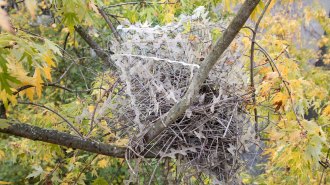 Animals
AnimalsIn a ‘perfect comeback,’ some birds use antibird spikes to build their nests
The spikes were meant to keep birds away. But five corvid nests in Europe use the bird-deterrents as structural support and to ward off predators.
-
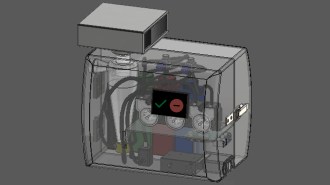 Health & Medicine
Health & MedicineA new device can detect the coronavirus in the air in minutes
The detector can sense as a few as seven to 35 coronavirus particles per liter of air — about as sensitive as a PCR test but much quicker.
-
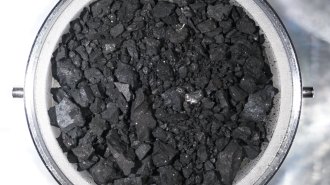 Astronomy
AstronomyRyugu asteroid samples are sprinkled with stardust older than the solar system
Slivers of the asteroid appear to be from the fringes of the solar system and could reveal bits of the history of the sun and its planets.
-
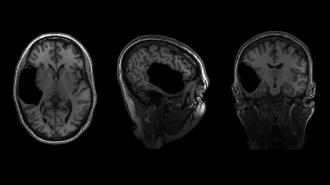 Neuroscience
NeuroscienceElyse G.’s brain is fabulous. It’s also missing a big chunk
A new project explores interesting brains to better understand neural flexibility.
By Meghan Rosen -
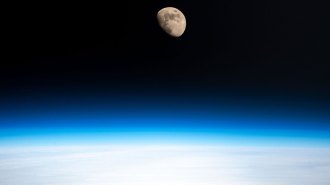 Physics
PhysicsMass has different definitions. The moon’s orbit confirms two are equivalent
Laser measurements of the moon’s orbit square with Newton’s third law of motion and Einstein’s theory of gravity.
-
 Climate
ClimateLast week was the hottest ever recorded — here’s why we keep smashing records
Global temperature records are being shattered as El Niño and climate change combine to push the Earth into uncharted territory, researchers say.
By Nikk Ogasa -
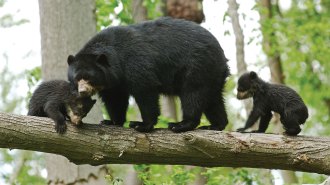 Animals
AnimalsExplore the past, present and future of ‘Eight Bears’
The book invites readers to meet the eight species of bears left on Earth and looks at how humans are shaping their future, for better or for worse.
By Jake Buehler -
 Earth
EarthHow Kenya is helping its neighbors develop geothermal energy
Renewable energy is crucial to halting climate change. In East Africa, the region’s geology makes geothermal energy a viable option.
-
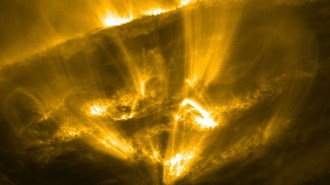 Astronomy
AstronomyCoronal rain has been seen splashing on the sun
New images of the solar corona, taken by the Solar Orbiter probe, reveal bright fireball effects and upwelling induced by falling plasma droplets.
-
 Earth
EarthWildfires aren’t going away. Here’s how smoke can affect your health
How does repeat exposure to wildfire smoke affect our health? Three experts weigh in on the massive air pollution fueled by Canada’s ongoing fires.
By Meghan Rosen